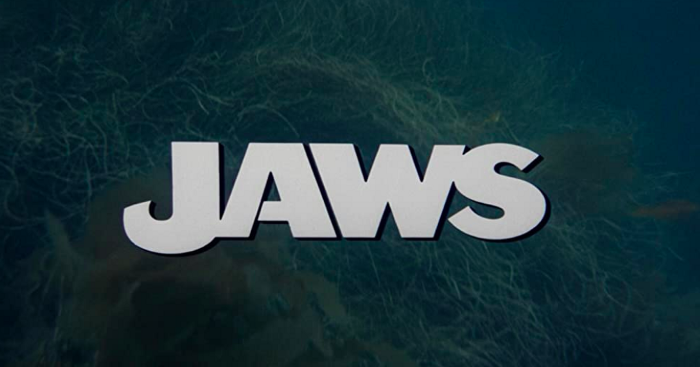
You can hear this movie title
Anyone over the age of 18 who hasn’t seen Jaws (1975, HBO, Prime Video) yet, go watch it right now.
Steven Spielberg’s summer classic has been around for nearly half a century, making it impossible to write about without spoilers. As a cultural touchstone, Jaws has launched a thousand parodies, tributes, and memorable quotes. It’s also been a PR nightmare for sharks.
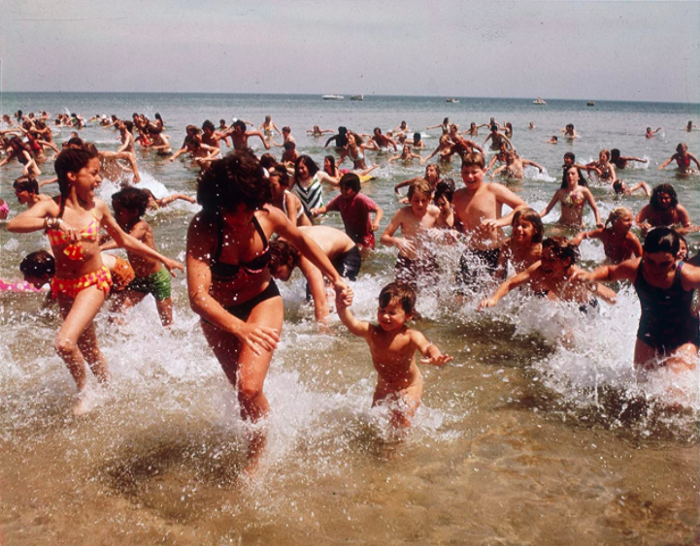
The opening scene of Jaws has become iconic:
a lithe young White woman named Chrissie (Susan Backlinie) swimming in the ocean after dark gets eaten by a shark we don’t see. While this was not the first movie to highlight a beautiful White woman in jeopardy as a titillating selling point, the “woman in peril from a shark” shot has been copied in other sea-monster movies.
The next act of Jaws has recently become a popular metaphor for our current global crisis and the United States’ response: Sheriff Brody (Roy Scheider) warns town mayor Vaughn (Murray Hamilton) about the attack on Chrissie and demands the beaches be closed for public safety. Mayor Vaughn would prefer to keep the town’s economy going and refuses to close the beaches, resulting in another shark-related death. A bounty is put on the shark, calling into action every idiot with access to a boat. Salty seaman Quint (Robert Shaw) warns the town that shark-hunting isn’t a job for everyone, but no one listens. A shark is caught and killed, but marine biologist and shark expert Hooper (Richard Dreyfuss) assures Brody that this fish’s jaw measurements do not match the bite marks on Chrissie.
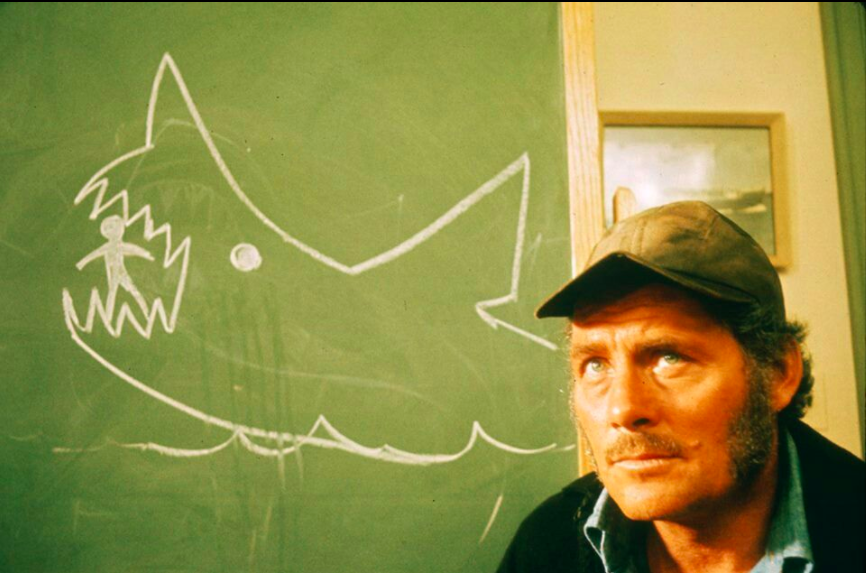
Quint in front of actual shark attack footage
And now the scene is set for Quint, Brody, and Hooper to sail out and find the real killer shark themselves. It will take the combined efforts of all three characters to catch and kill the predator that’s terrorizing the town and robbing locals of tourist dollars.
Brody, Quint, and Hooper can be thought of as the Law, the Experience, and the Science in shark hunting. Only by working together can they accomplish the daunting feat of finding, catching, and disposing of the film’s monster. Law and Science protect the people; Science and Experience provide the knowledge needed; Experience and Law take action.
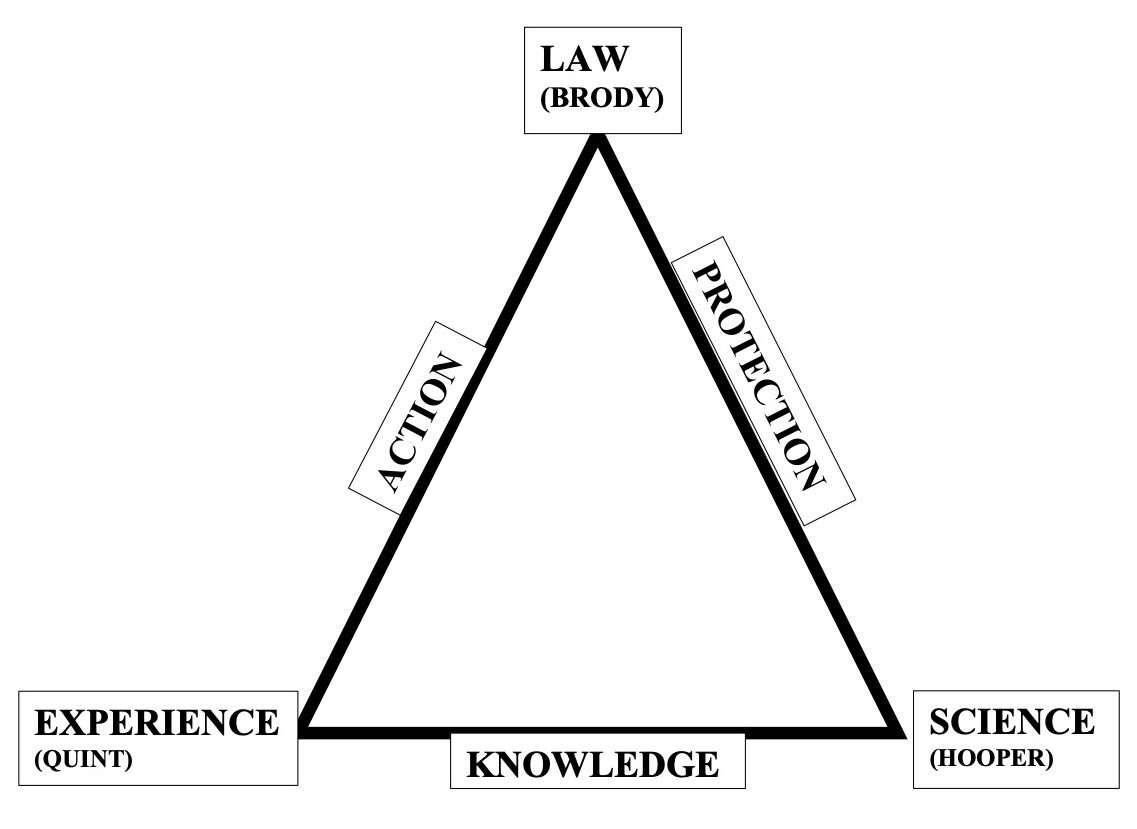
My exceptional graph-making services are available upon request
Jaws famously doesn’t show the shark until near the end, when Brody, Quint, and Hooper are established on the boat in the middle of the water. Until then, Spielberg utilizes the result of the shark’s attack to imply its ferociousness: Chrissie’s hand in the sand, a torn raft, a pier being ripped apart. By today’s standards this method seems tame, but 45 years after the film’s release it holds up as a fantastic way to deliver terror.
In addition to the mounting terror of a monster we haven’t seen yet, Jaws emphasizes the danger of a government — here in the form of Mayor Vaughn — that refuses to put people’s lives above cash profits. Several of the town’s residents agree and back him up. Without the beaches, they have no income. And while this does make sense, it’s still short-sighted and leads to even more deaths. By the time Brody’s own son is hospitalized from the shock of witnessing the shark kill a man, the mayor is beside himself. With the town reeling and panicked, Brody and Hooper work together to protect everyone from themselves. Brody works with Quint to take action. Hooper is brought along for his expertise on sharks, and he and Quint together manage the strategies. Three experts in three different fields come to outrank the government and save the day.
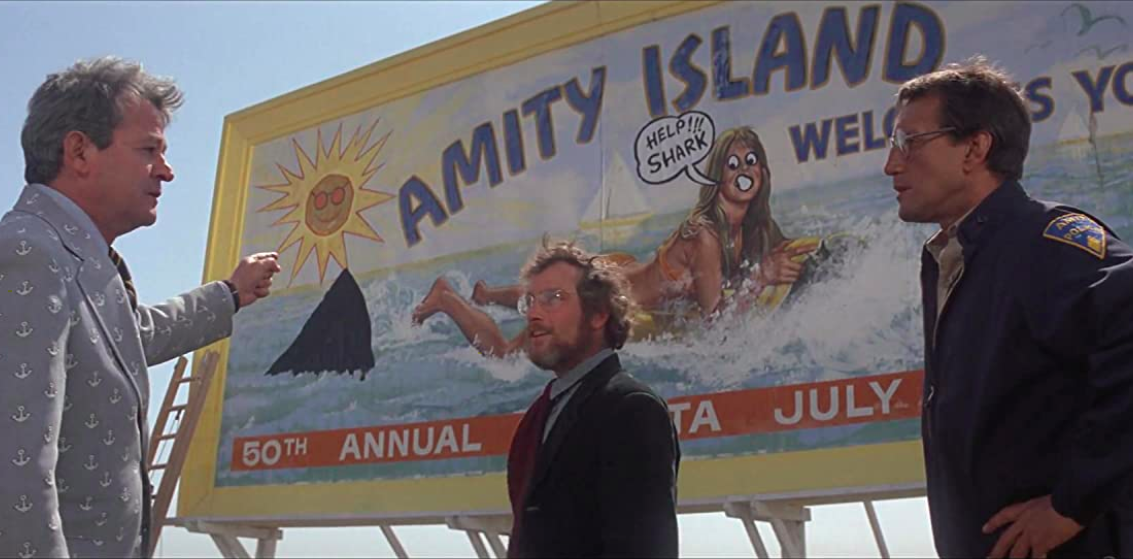
Mayor Vaughn does NOT find this funny
Like the majority of Spielberg’s movies, Jaws’ central characters are all male, white, cis-gendered, and presumably heterosexual. Aside from Chrissie, the other women are Brody’s wife Ellen (Lorraine Gary), a local business owner, and the mother of the child victim. Chrissie serves as the film’s premise: this beautiful young woman has been brutalized by a monster, and only our three (heterosexual White male) heroes can save everyone from a similar fate. Ellen serves as the sexy lamp of the movie: she’s supportive and calm for her husband while he gets to emote. The business owner and mother are in the movie to act as foils for Brody, Hooper, and Quint: the business owner wants to keep the beaches open, and the mother blames Brody for her son’s death.
Other than a few Black extras, there is no other diversity in Jaws.
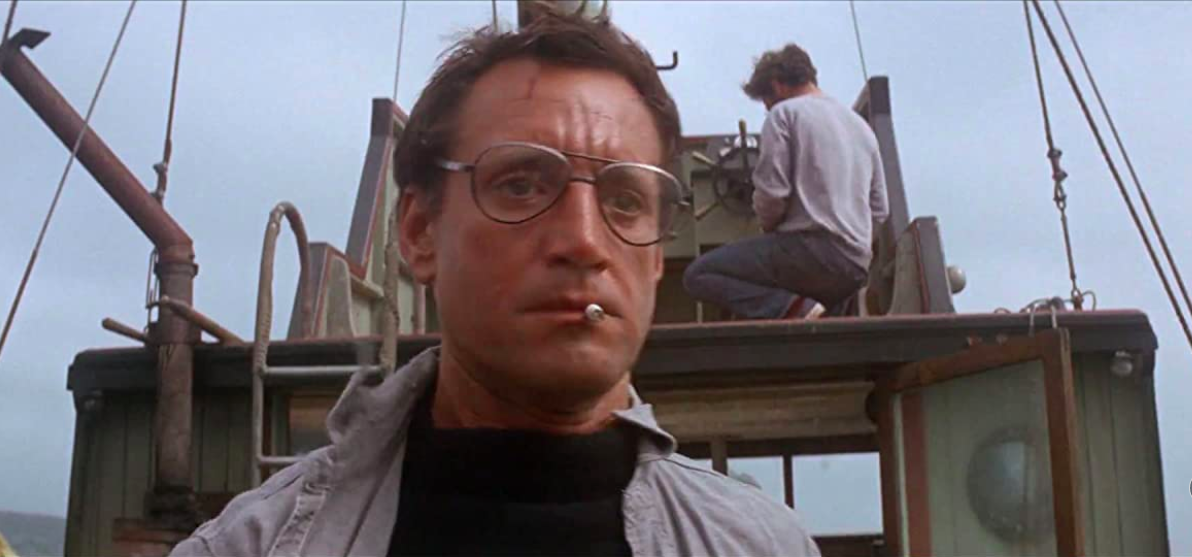
The exact moment Brody realizes they are going to need a bigger boat
Although Spielberg probably did not intend for his movie to be read this way, Jaws sets up a massive homoerotic undertone mixed with some low-key misogyny. At one point, Hooper and Quint compare scars and share the stories of how they got them in classic male competition to see who is the most masculine heterosexual. There is plenty of phallic imagery on the boat and in the harpoons Hooper uses. And then these three men are out to destroy something that’s most well-known for its gaping maw full of sharp teeth. If you really want to get into symbolism, the shark spreads open the bars of Hooper’s shark cage in order to attack him. Feminists and psychologists could have a field day with this.
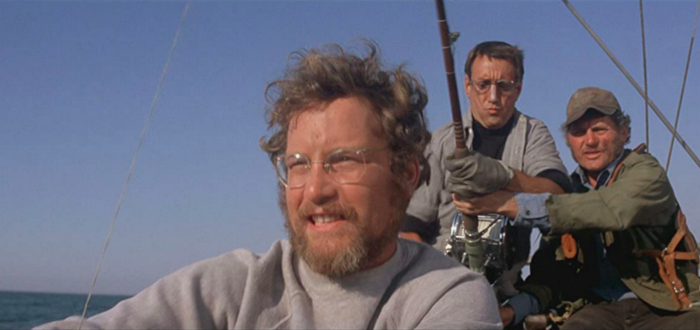
Just three heterosexual men on a boat with zero subtext
Despite the lack of diversity, Jaws stands up as a masterpiece of horror.
After nearly half a century of scaring audiences out of the water, it remains a masterclass in slow-burn and powerful storytelling. Although Spielberg hasn’t been known as a horror director, Jaws nevertheless earns its place firmly among the best horror movies of all time. There is absolutely a place for blood, gore, and chase scenes in horror films, but Jaws remains the gold standard for the terror by way of what isn’t shown. This is why it is oft-imitated but never recreated.
Movie Review originally published by Meredith Morgenstern on Jul 5, 2020

See also Jaws 2, Jaws 3, and Jaws The Revenge













